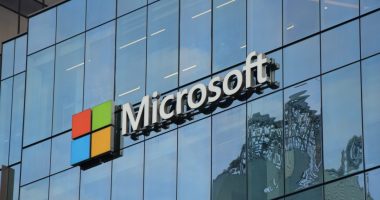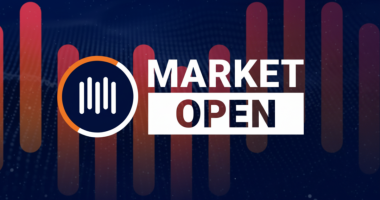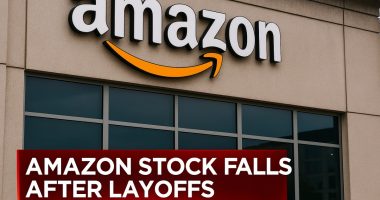The following is a transcription of the above video, and The Market Online has edited it for clarity.
Canadian-based Mandalay Resources (TSX:MND) has producing assets in Australia and Sweden focused on gold and antimony. CEO Frazer Bourchier joins me here in studio to give us update on the company’s growth and financials.
TMO: Now to get started, you recently reported your Q3 production results. What are some of the highlights to date?
Bourchier: Oh look, it was another great quarter. We produced over 20,000 ounces of gold equivalent. We now have $55 million of cash in the bank, all referenced to US dollars, zero debt and we’re on target to meet our guides of ninety to a hundred thousand ounces this year.
TMO: Well cashflow is a focus. So tell us about Mandalay’s cashflow story with 55 million in hand.
Bourchier: Look, with the two assets we have, we generate free cashflow close to $4 to $5 million every month, which is fantastic for us, for a relatively small company. That continues to build, we’ve been able to clean up our entire revolver debt facility, 35 million available, that’s now nothing drawn on there and we have this stockpile of 55, which we think will grow to close to 70 if not more by the end of this year.
TMO: Then how does that play into the goal of being debt free or are you already debt free?
Bourchier: Clearly already debt free. However, I mean we didn’t start that way. We’re now debt free. We’re piling up cash for 240 million US market cap company. 25% of our market cap is in cash but we also want to further increase that stockpile. We see a use of proceeds of growing our mine life, resources and in the event of an acquisition investing further in a larger pro forma company.
TMO: Can you give us a brief explanation of antimony and its benefit as a mineral to the company’s portfolio?
Bourchier: Yes, antimony look, not very well known. It is on the periodic table of elements but it’s been around for a while. It is classified as a critical mineral, a rather interesting one. Half of its use is usually in flame retardants as in high-end flame retardants, not the type you’d use in your house but the type used on an airplane or something but it’s also got a significant growing use, not only in solid state batteries but in solar panels to remove the air bubbles in there and that demand has just driven the price up in addition to recent export restrictions out of China. So having antimony, we are the largest producer of antimony in the Western world. That’s not because we produce a lot, it’s just that shows most of it. 85% of it’s in China, Tajikistan, or Russia. So having that ability to produce a critical mineral that’s highly sought after the price is more than doubled in the last month or the last three months in fact and it adds nicely to our bottom line at our mine in Australia.
TMO: Let’s dive into your projects. First the one in Australia, Costerfield has multiple targets. What has been the most significant from that project at this point?
Bourchier: Well, at Costerfield, we’ve had that in our portfolio for probably close to 15 years. The mine life, the way the ore body is set up, it always varies between two years to five years but it’s been doing that for the last 15 years. It’s the nature of the ore body. It’s a very high margin asset, high grade, one of the highest grade mines we have. While it’s not a big throughput, we can generate about 50,000 ounces a year there equivalent, similar to what we do in Sweden but we can generate 40 to 70 million free cash flow a year there because of the margins. It’s a great asset and we have near mine targets, Cuffley Deeps we talk about in Shepherd and regional targets, especially True Blue. We’re excited about more exploration dollars, 10 million a year at least and continuing that asset on let’s say between a two to five year mine life.
TMO: Let’s move to your mine in Sweden. What is the estimated mine life and how does that benefit your bottom line?
Bourchier: The mine life in Sweden is actually a pretty decent size. It’s like nine years again. We’ve had that asset for 10 years. We’ve continually replaced resources there. So it’s always been an eight to 10 year mine life. It’s a bit different than Costerfield in the sense that it’s 10 times as large but it’s about one tenth of grade, so it’s a slightly lower margin asset but again, we can generate 15 to 25 million a year free cashflow. It’s a massive system. It’s got over 3000 veins. We think that’ll go on forever. The issue is targeting the higher grade portions of that ore body in Sweden.
TMO: How do you do that when you’re looking to target those areas?
Bourchier: It’s a combination of both our infill drilling and other exploration efforts that we make. We have a large array of ore bodies to choose from, so to speak, both above the marble unit we call it and below the marble unit. But it’s a matter of making sure we get our development in place and getting more development so we have more working scopes and faces that we can access that give us that flexibility.
TMO: Now what are the main points that are positioning the company as a mid-tier producer?
Bourchier: We believe there is a strong need to grow and consolidate within this industry. There are a lot of smaller producers. The nice thing about being a producer is we’re generating cash. It’s a great platform. We have no debt, we have no encumbrances, we have no royalties, we have no streams but we produce approximately a hundred thousand ounces a year and size and scale matter in this industry and having extra diversity in terms of multiple assets and even multiple commodities, although gold is our main focus but add in antimony, we think that gives us a chance to consolidate, combine with other like partners, get index listed like on the JDXJ, access to capital markets, makes it easier, more trading liquidity. So that’s a path we’re going down to try and consolidate and do sort of at market combinations.
TMO: Where are you on your growth strategy?
Bourchier: I would say we’re probably a quarter to halfway there. So I came in 18 months ago, assessed the operations, we stabilized them or continue to stabilize them. We’ve replaced resources and reserve growth. We’ve cleaned up our debt, we’ve built up a cash profile and we’ve engaged with a number of light parties to see if they share the same vision as us to move into that mid-tier producer status. The great thing is we don’t have any builds either, so there’s no big capital risk in front of us. It’s really about adding to that production profile and generating more cash.
TMO: Now in your corporate deck you have a strong values-based statement focusing on sustainability. What are some of the things that are most important to Mandalay?
Bourchier: For us, even though we’re in tier one jurisdictions, the ESG component is critically important. That starts with, I would argue our employees and valuing and listening to and acknowledging their contribution but in addition to contribution and engagement with the local communities, we have very engaged and supportive communities both within the state of Victoria in Australia, we’re about one hour north of Melbourne and in Skellefteå, which is about one hour flight north of Stockholm in Sweden. So that engagement in addition to relationships with contractors, suppliers, our mine by the way in Sweden is a pretty green mine. I mean, it’s all hydro power generated that supplies the mine. So it’s a very green, sustainable, cheap form of power and that’s really a path we go down in terms of both employees, community and power generation.
TMO: Is there anything else you’d like to add?
Bourchier: I mean, I think our story, we are small, we admit that, but we are growing. We are diversified in terms of multi-asset. We’re in tier one jurisdictions. We’re diversified in terms of multi commodity, mainly gold but also antimony of critical mineral. We’ve got zero debt, we’re accruing cash. We’re very focused on continuing to replace reserves that we produce, but also doing combinations, consolidating, getting size and scale and moving upwards. So we’re quite excited about that.
You can find Mandalay Resources on the TSX under the symbol MND, or head to its website at mandalayresources.com or at Stockhouse.com.
Company shares were last trading at $3.36.
Join the discussion: Find out what everybody’s saying about this stock on the Mandalay Resource Bullboard investor discussion forum, and check out the rest of Stockhouse’s stock forums and message boards.
The material provided in this article is for information only and should not be treated as investment advice. For full disclaimer information, please click here.



